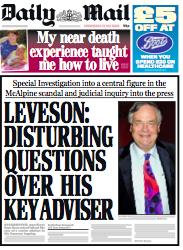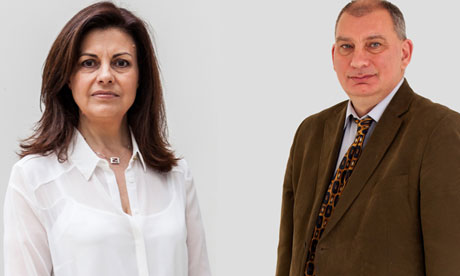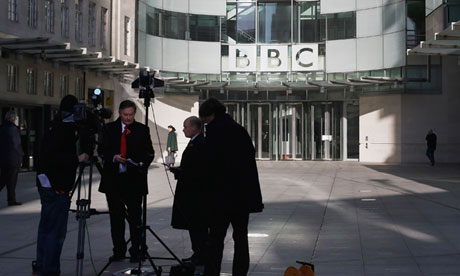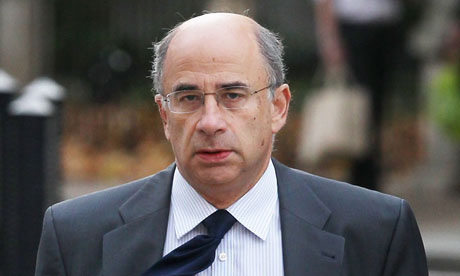There are many articles you could find which will demonstrate the typically partisan, subjective approach of the bulk of the UK press to Leveson, in the key period between the end of the public hearings and his report, which will recommend how the regulation of UK media should be reformed.
I've copied in just one below,
an unusually belicose missive from Grauniad media blogger Roy Greenslade, but it provides specific detail of the flak strategy with specific examples, plus further links.
Flak is one of Chomsky + Herman's
five filters within their
propaganda model of how the media operate, and to what end (not to inform a citizenry but to reinforce support for elites). You'll find multiple links to Chomsky here and on the prodeval blog.
Laughable Daily Mail 'investigation' smears Leveson inquiry assessor
I have been worried about the Daily Mail's editor, Paul Dacre,
for some time. After seeing today's issue of his paper, I really think
it's time for the men in white coats to visit its Kensington offices as
soon as possible.
The Mail devotes 11 full pages, including the whole of the front page, to a "special investigation" into one of the Leveson inquiry assessors, Sir David Bell.
 It seeks to present Bell, the former Financial Times
chairman, as the spider at the centre of a web of intrigue. In a
classic example of conspiracist innuendo, it implies that the "elitist
liberal" Bell is covertly exercising influence that somehow threatens
the freedom of the press.
It seeks to present Bell, the former Financial Times
chairman, as the spider at the centre of a web of intrigue. In a
classic example of conspiracist innuendo, it implies that the "elitist
liberal" Bell is covertly exercising influence that somehow threatens
the freedom of the press.
He is presented across many thousands of
words as some kind of shadowy figure who, through his chairmanships and
trusteeships of various charitable bodies, is exerting undue and
unaccountable power.
Through a series of leaps of logic and phoney
"revelations" of Bell's publicly acknowledged positions, the articles
persistently insinuate that he has been up to no good.
He is even accused of being somehow responsible for the Newsnight report which falsely suggested that Lord McAlpine had been guilty of child abuse and, by extension, that he is also part of the reason for the BBC's current crisis, including the resignation of its director-general.
In a leading article,
the Mail says its "investigation paints a picture of how a small,
intertwined nexus of Left-of-centre individuals – some with links to
Ofcom, the media regulator, and virtually all with links to Bell – have
sought to exert huge influence on the inquiry."
Clearly, this is a sensitive time to attack a member of Lord Justice Leveson's team, as the editorial admits:
"The
Mail is acutely aware of the seriousness of publishing this
investigation. We know all too well that our enemies will accuse us of
being aggressively defensive in a bid to pre-empt the outcome of the
Leveson report, which is due any week now.
But in the light of the
scandal engulfing the BBC, we passionately believe in the public's
right to know about a senior Leveson assessor's role in it."
So,
in order to lend some sensible perspective to this astonishing
accusation about Bell's supposed complicity in the BBC's "scandal", let
me try to disentangle what amounts to a farrago of distortion with added
vilification.




